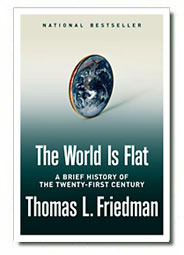I’ve been trying hard to sort out a decent answer for the unipolarity/great powers question on which I am presenting Tuesday, but still having a lot of trouble. The definitions strike me as very circular. The characteristics we ascribe to great powers (nukes, UN Security Council seats, big economies) are as much descriptions of the states we already think of as great powers as they are a checklist against which countries can be compared. Likewise, ‘unipolarity’ in the contemporary sense basically just means ‘the world how it has more-or-less been since the end of the Cold War.’
The importance of the term ‘great power’ lies in the ways in which the distinction changes the thinking of states. While largely reflective of underlying capabilities, the confidence associated with such status is a capability in itself. Likewise, it is in the psychology of the great power distinction that the concept most forcefully manifests itself in the world. As such, the criteria of great power status change over time with both the real and perceived values of different national capabilities: an overseas empire, for instance, or nuclear weapons.
Since the United States is generally accepted to be the most powerful nation in the world, there is an obvious incentive to create arguments that might sway its behaviour. This is a strategy that manifests itself in ways like opposition groups attempting to secure American support for the removal of autocratic or unpopular rulers . It also manifests itself through the manipulation of the United States’ perception of its own security, and what the enhancement of that security requires. A prime contemporary example of this trend is the support that some truly grim regimes in the Arab world have been able to extract from the present administration, in exchange for security cooperation. To make attempts at lobbying based on assertions about the role of superpower states in general, or the conditions of unipolarity, is a less transparent way of trying to influence American policy today. Arguably, such initiative is aided by the generally positivist conception of the social sciences in the United States at present. Faith in the existence of valid laws of state behaviour opens the door to manipulation of that behaviour through the manipulation of how such laws are understood. For instance, consider the ways in which South Asian governments interacted with the ‘domino theory’ during the Vietnam War era.
The most common way in which unipolarity is used as a justification for policy by liberals is to assert the moral responsibility of the superpower to at least lead the drive towards greater international justice. Likewise, the classical realist response is to develop and immediate and abiding concern about new great powers rising to challenge the superpower: hence the intense present concern about China. Both perspectives are important for understanding how the idea of unipolarity affects policy prescriptions.
I think I basically just need to poke at these ideas for a few more hours – as well as reading some more sources – and I will have a decent, though perhaps somewhat unusual, paper and presentation.


 In
In